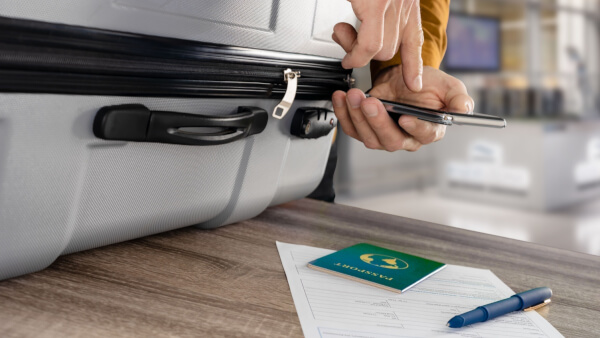Compare Revolut Alternatives in Australia: Features and Fees
Compare Revolut and its alternatives in Australia on features and fees to find the best multi-currency account for your needs.

The death of a loved one is hard, and for those closest to them that grief is often processed alongside having to deal with the estate. As part of the estate, provisions are made for assets to be passed on to people who played a significant part in the person’s life, but what are the implications of this when it comes to finances?
To help, we’re going to break down what there is to know about inheritance tax in Australia. We’ll look at what inheritance tax is, the current Australian Taxation Office (ATO) rules on inheritance tax, and some specific situations like whether the Australian superannuation death benefit is taxed and how inheritance tax works if you’re based overseas.
| 💰 Wise provides you the mid-market exchange rate and transparent transfer fees shown upfront. |
|---|
Learn more about
Wise money transfers
| Note: This article is purely for general information purposes and is not to be taken as financial advice. We recommend that you obtain independent legal and financial advice before making any form of decision. |
|---|
Speaking in general terms, inheritance tax is a tax that’s charged on the assets of a deceased estate, such as property, possessions and money. If and how it is applied varies depending on the country and local tax laws, and it can be quite complex to understand, especially if there are different thresholds, exemptions and tax rates.
Australia doesn’t have an inheritance or estate tax, but you might have other tax obligations that arise from the assets you inherit, such as property or superannuation.¹
What those obligations are will depend on your relationship to the deceased and how the asset is transferred or paid out. Your status as a resident or non-resident of Australia for tax purposes can also play a part.
When someone passes away their superannuation is paid to a dependent beneficiary or the trustee of the deceased estate in the form of a superannuation death benefit.²
The superannuation death benefit can be taxable in certain circumstances, depending on who’s receiving the benefit and how it’s being paid.
One of the key factors is if the person is considered a dependent. The definition of a dependent under Australian superannuation law is slightly different to taxation law.
Based on the superannuation laws in Australia, this is who can be paid a death benefit while being considered a dependent.
Under Australian taxation laws, this is who’s considered a dependent when determining if the death benefit will be taxed or not.
There are also some considerations if the deceased dies in the line of duty while serving in the defence force, Australian Federal Police, state or territory police force or as a protective service officer.
If the death benefit is paid as an income stream, the proportioning rules are used to decide how much is tax free and how much is taxable.
In the event that a death benefit income stream is being paid to a dependent child, you must stop paying the income stream and pay the remaining amount as a tax-free lump sum either on or before they turn 25. The only exception is if there’s a permanent disability to consider.
When a death benefit is paid out as a lump sum, the taxation amount will vary depending on who it is being received by. If the lump sum benefit goes to a dependent it’s all tax free, but if it goes to a non-dependent then the tax-free and taxable component are calculated for each benefit paid out using the proportioning rule.
If you’re facing a situation where the payment of the superannuation death benefit is more complex, it’s a good idea to reach out to the superfund or contact an industry professional to ensure you’re receiving the correct advice for your particular circumstances.
If the beneficiary is a foreign resident for Australian tax purposes, they’re still treated the same as a tax resident because the death benefit is considered Australian income. The only exception is if the person is a tax resident of somewhere that has a double tax agreement with Australia.
In general capital gains tax (CGT) doesn’t apply when you inherit an asset as an individual, but it can apply when you sell it.³
When CGT does apply, the base cost it’s worked out from could be based on the value when the deceased person came into possession, or when they died and it became an inherited asset.
If the asset passes to someone who’s a foreign resident, CGT applies if these conditions are met.
When Australian capital gains tax does apply for assets inherited by foreign residents, the gain or loss is worked out using the market value at the date of death and the cost base or reduced cost based at that date.
If your inheritance is taxable, for example a capital gain or loss, then it needs to be declared on your tax return. Remember, if you’re ever uncertain there are tax professionals, accountants and financial planners who may be able to help.
If you’re an overseas resident then you’ll need to check what the local laws are regarding inheritance tax and whether there are any double tax agreements in place between that country and the Australian government.
No matter what country you are in, inheriting from an estate in another country can have its complexities so it’s best to consult an expert to ensure all obligations are met.
As an example, if you’re living in the United States you’re required to report any bequests from a nonresident alien or foreign estate that exceed the aggregated threshold of $100,000 in a taxable year.⁴ It is usually exempt from IRS tax but there may be some state taxes that apply.
Here’s a few FAQs about Australian inheritance tax.
No, currently Australia doesn’t have inheritance tax so there’s no tax on inherited cash.¹
At a federal level Australian inheritance tax was abolished in 1979 and by 1982 all of the states had removed any relevant sections of the tax system as well.⁵
The answer to this can be a little tricky depending on what it is you’ve inherited so check out our full guide on bringing inheritance money into Australia to get a more in depth answer.
Send money with Wise and you get the mid-market exchange rate, which means no surprise mark-up on your currency conversions. Fees are clear, shown upfront and secure.
Wise is a specialist in sending large amounts overseas, securely. The added bonus is that with a sliding fee scale, the more you send, the more you save. The exchange rate is always based on the mid-market rate.
In Australia, Wise is regulated by the Australian Securities and Investments Commission (ASIC) and holds an Australian Financial Services Licence (AFSL number 513764).
It’s super easy to arrange a payment with Wise. Once your account is approved, you can set one up in minutes, without the need to visit a physical branch in person.
Join over 16 million customers currently enjoying Wise. It’ll only take a few minutes to register and see what’s inside.
Register your Wise account
in minutes
Please see Terms of Use and product availability for your region or visit Wise Fees & Pricing for the most up to date pricing and fee information.
This article is purely for general information purposes and is not to be taken as financial advice. We recommend that you obtain independent financial advice before making any form of decision.
Sources:
Sources checked on: 25 October 2024
*Please see terms of use and product availability for your region or visit Wise fees and pricing for the most up to date pricing and fee information.
This publication is provided for general information purposes and does not constitute legal, tax or other professional advice from Wise Payments Limited or its subsidiaries and its affiliates, and it is not intended as a substitute for obtaining advice from a financial advisor or any other professional.
We make no representations, warranties or guarantees, whether expressed or implied, that the content in the publication is accurate, complete or up to date.

Compare Revolut and its alternatives in Australia on features and fees to find the best multi-currency account for your needs.

Compare the best CommBank credit cards. Discover which CommBank credit card is best for you, from Qantas points to zero-interest options and travel perks.

Does your Bankwest credit card have travel insurance? Discover which cards still offer complimentary cover, the activation rules, and what it covers.

Planning an international transfer? Our Money Travels review covers everything from fees, exchange rates, and safety to help you decide if it's right for you.

Thinking about Hay Australia? In this Hay review, we break down the account features, card benefits, fees, and how it compares to alternatives.

Planning a large money transfer with ING Bank in Australia? Discover fees, daily limits, processing times, and alternatives.